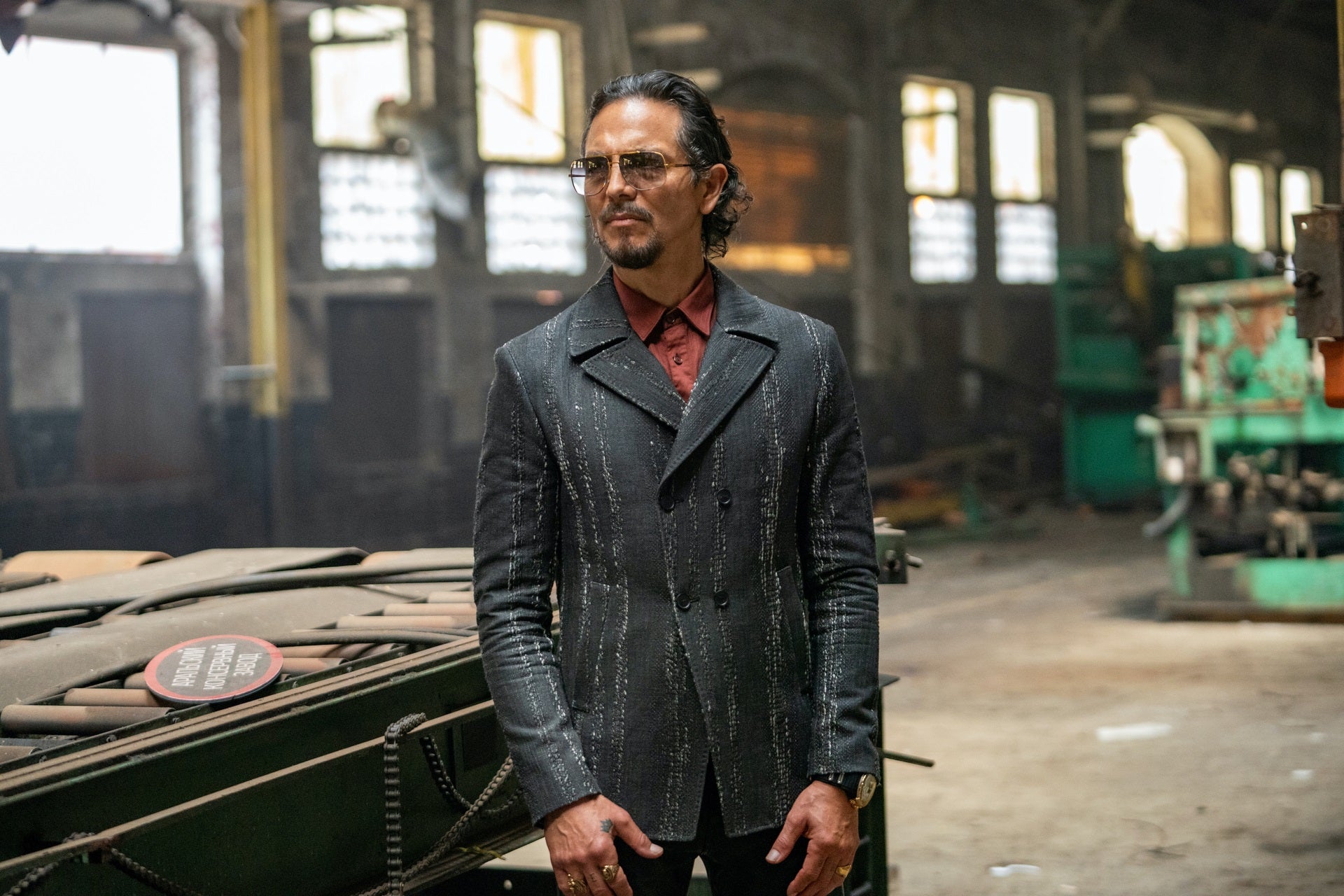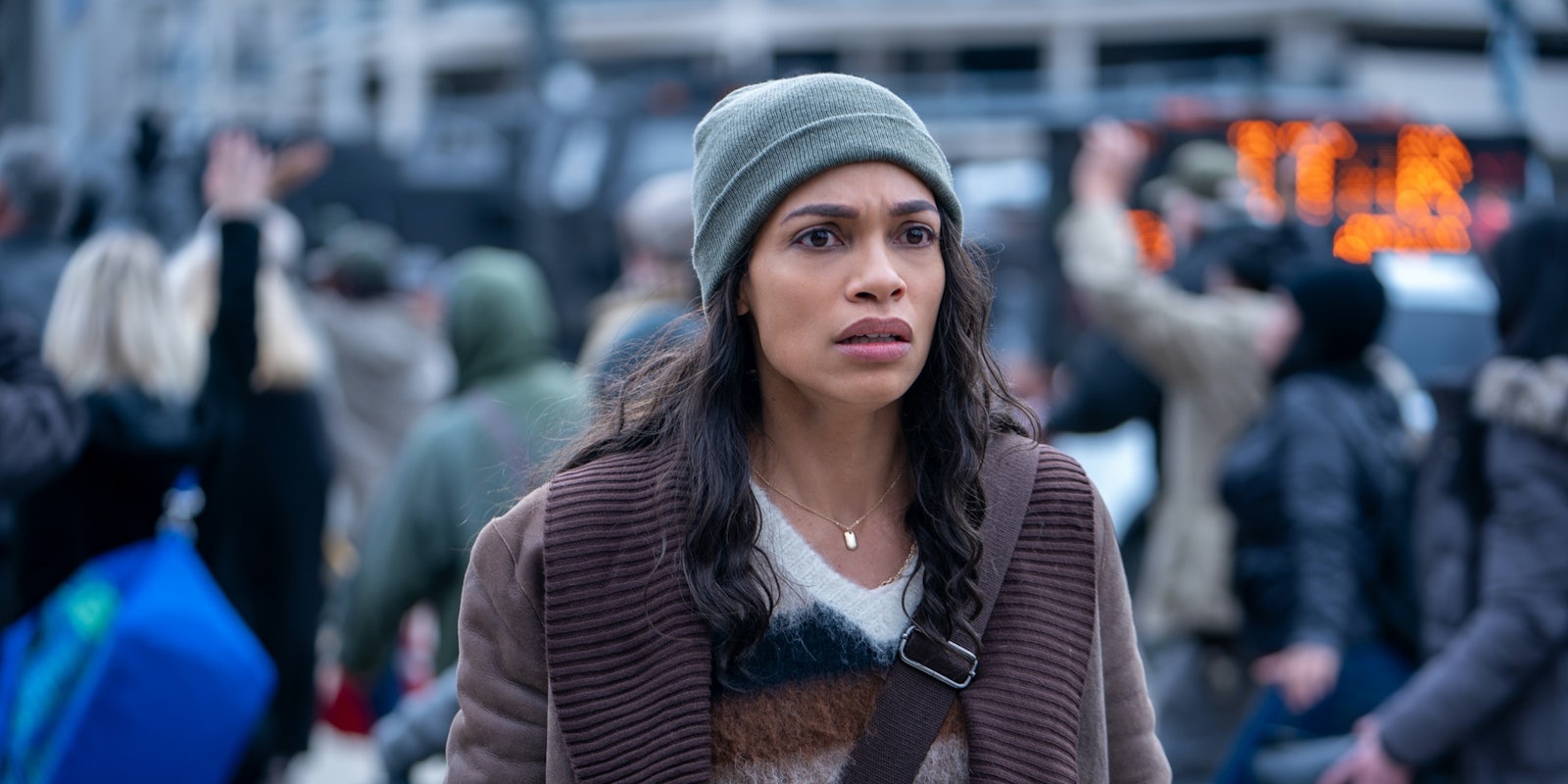Eight years ago, New York City was cut off from the outside world, becoming a demilitarized zone between two sides in a new American Civil War. This concept is the main similarity HBO Max’s DMZ shares with its source material, the acclaimed comicbook series by writer/artist Brian Wood and artist Riccardo Burchielli. While the comic is a political/survival thriller about a journalist who gets stuck in the DMZ, this HBO Max miniseries (produced and partially directed by Ava DuVernay) delivers a completely different tone and story.
Creator: Robert Patino
Streaming: HBO Max
In a near-future New York City ravaged by civil war, a doctor (Rosario Dawson) searches for her missing son – and becomes embroiled in a feud between rival gangs. Although Benjamin Bratt gives a compelling performance as the villain, this four-episode miniseries suffers from poor pacing and radical departures from its source material.
Rosario Dawson stars as Alma, a doctor who sneaks into the DMZ to find her missing son, becoming embroiled in a dispute between warring NYC gangs. There’s nothing intrinsically wrong with using pre-existing IP as a springboard to tell a new story, but this adaptation just isn’t as good as the original comic. HBO Max’s DMZ can’t seem to decide between a stylized vibe like The Warriors or Escape from New York, or a more grounded brand of drama like Y: The Last Man. For instance there’s a subplot about water scarcity, but no explanation for the city’s unlimited electricity, powering the show’s copious colorful lights and block parties.
This unbalanced tone carries over to the pacing, which doesn’t really work for a four-episode narrative. Episode 1 is meant to be a ticking-clock thriller as Alma has 24 hours to find her son before she loses her route out of the DMZ. But we see her ambling around at a snail’s pace, getting sidetracked with a bizarre lack of urgency. Writer Robert Patino (Sons of Anarchy) also seems largely disinterested in the wider worldbuilding of a modern-day civil war.
Despite these issues, DMZ has some brights spots. The show has an appealingly vibrant aesthetic, differing from the grimy tone of most dystopian media. And Benjamin Bratt, playing gang boss Parco Delgado, is positively buzzing with manic malevolence. As Alma searches for her son, her main obstacle is the citywide rivalry between Parco’s gang and the Chinatown boss Wilson Lin (Hoon Lee), supported by squads of fashion-forward gangsters. By a somewhat ridiculous coincidence, Alma also has a personal history with both men.

Benjamin Bratt prowls around like a sexy lizard, clad in a series of tightly-fitted black outfits while threatening his enemies and delivering egomaniacal speeches. Parco isn’t the kind of villain you root for, but he’s the most compellingly watchable character by far. Unfortunately for Rosario Dawson, Alma is stuck in a rather contrived protagonist arc shaped by absurd conveniences.
Alongside her connection to the two most powerful men in the city, Alma is also constantly meeting strangers who deliver videogame-style exposition and help her on her quest. She also appears to be free from logistical concerns like food, water, and currency. This kind of detail gets handwaved so Alma can focus on the plot, a family/gangland melodrama that just happens to take place in a fantasy-warzone setting.
Four episodes is a rather rushed timeline for Alma to infiltrate the DMZ and untangle her complicated family issues – and as a dystopian drama, DMZ doesn’t measure up to recent shows like Y: The Last Man (which dug deep into the aftermath of a natural disaster) or the brilliant Station Eleven (a clever and moving exploration of community, trauma, and survival). This show really doesn’t make good use of its source material – and nor does it make much impact as an original drama.


